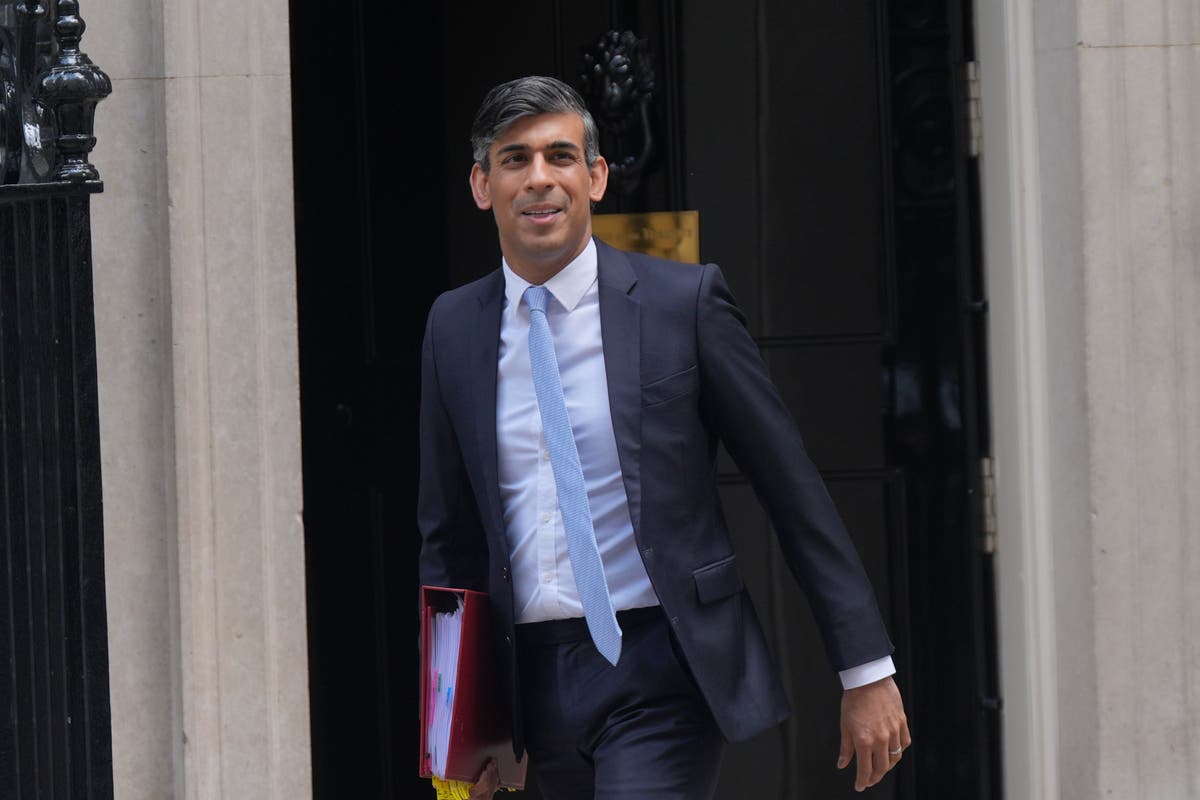UK inflation has fallen by lower than expected, despite falling gas and electricity prices, dashing hopes that the Bank of England will lower interest rates at its next meeting in June.
The figures released by the Office for National Statistics (ONS) on Wednesday morning showed that the consumer price index was 2.3 per cent in April, down from 3.2 per cent in March.
It marks the lowest level since July 2021, however it is still 0.3 percentage points higher than the Bank’s target figure of 2 per cent, and higher than the 2.1 per cent forecast by City analysts.
Services inflation, which is also critical indicator for Bank policymakers, dipped slightly from 6 per cent in March to 5.9 per cent in April, coming in ahead of the 5.4 per cent rate that some economists had been predicting.
Economists think that the higher-than-expected inflation figures make it less likely that the Bank will cut interest rates from 5.25 per cent in its meeting in June.
Responding to the UK inflation figures, Suren Thiru, ICAEW Economics Director, said that a June rate cut was now “unlikely” and due to lower than expected inflation figures and disappointing services inflation.
He said: “This underwhelming drop in inflation suggests that the UK is rather stumbling back towards the Bank of England’s 2% target, as lower energy bills had a smaller than expected impact on April’s headline rate.
“Concern over hotter than expected headline inflation is exacerbated by disappointing declines in core and services inflation, which suggest that the problem of underlying price pressures embedded in the wider economy have yet to be solved.
“The headline rate is set to drop markedly over the summer, once the expected decline in Ofgem’s energy price cap cuts people’s energy bills from July.
“Lingering concerns over underlying inflationary pressures mean a June rate cut is unlikely. However, these figures may convince more rate setters to vote to ease policy, providing a signal that a summer rate cut is still possible.”
Paula Bejarano Carbo, NIESR Economist, said Wednesday’s figures were “positive news” but that the Bank could still decide to hold interest rates.
She said: “Inflation has fallen to its lowest level in almost three years. This is positive news, however inflation remains above the Bank of England’s 2 per cent target and core inflation is still higher than its historical average at 3.9 per cent.
“Paired with last week’s strong wage growth data, we believe that elevated services inflation will remain an upwards risk to inflationary pressures in the second half of this year.
“As a result, the MPC may exert caution at its upcoming meeting and hold interest rates, despite today’s encouraging fall in the headline rate.”
Policeymakers at the central bank have hiked interest rates over the past two years to 5.25 per cent in a bid to tackle inflation.
Prime minister Rishi Sunak, who has made getting inflation under control one of his key economic pledges, struck a more positive tone.
He said: “This is proof that the plan is working and that the difficult decisions we have taken are paying off. Brighter days are ahead, but only if we stick to the plan to improve economic security and opportunity for everyone.”
Reacting to the figures shadow chancellorRachel Reeves said: “Inflation has fallen, but now is not the time for Conservative ministers to be popping champagne corks and taking a victory lap.“After fourteen years of Conservative chaos families are worse off. Prices in the shops have soared, mortgage bills have risen and taxes are at a seventy year high.
“Rishi Sunak is now putting family finances at risk again with his £46 billion unfunded policy to abolish national insurance that will mean higher borrowing, higher taxes or the end of the state pension as we know it.“It’s time for change.
“Labour’s first steps will deliver economic stability so we can grow our economy and keep taxes, inflation and mortgages as low as possible.”
TUC General Secretary Paul Nowak said that despite the fall in inflation the “cost of living crisis is not over” and that millions are still cutting back from everyday essentials.
He said: “Prices are still going up. Food and energy bills are much higher than a couple of years ago. And many are being hit by soaring mortgage repayments.
“While it’s good the inflation rate is lower, millions up and down the country are still having to cut back on everyday essentials as they struggle to makes end.
“That’s because household budgets have been decimated by the highest price rises in the G7 and wages have flatlined over the last 14 years.”

